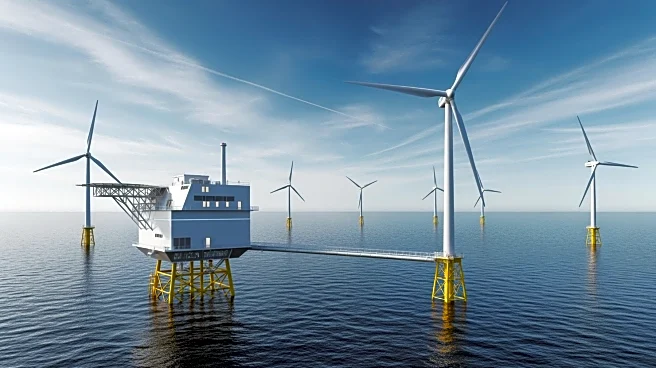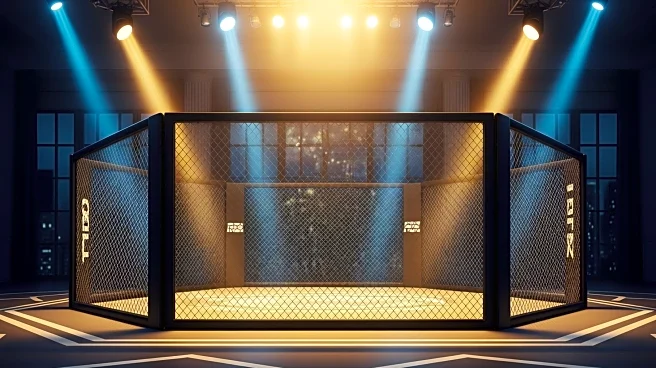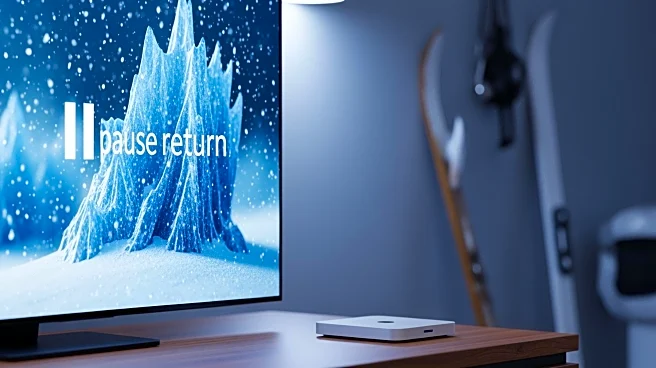What's Happening?
Belgium-based offshore installation services company DEME has taken delivery of its new wind turbine installation vessel (WTIV) Norse Wind at the CIMC Raffles Shipyard. The vessel is designed to install the next
generation of offshore wind turbines, featuring advanced technology and sustainable design elements. Built by CIMC Raffles and designed by GustoMSC, Norse Wind is equipped to handle turbines with rotor diameters exceeding 300 meters and XXL monopiles weighing up to 3,000 tons. Its 3,200-ton crane allows operations in water depths up to 70 meters, setting new standards in lifting capacity, speed, and efficiency. The construction of Norse Wind began in 2023 by Havfram, a Norwegian offshore wind contractor acquired by DEME earlier this year. The vessel was completed on schedule and is already contracted for several major offshore wind projects, with a strong pipeline through 2030.
Why It's Important?
The delivery of Norse Wind marks a significant advancement in offshore wind installation capabilities, reinforcing DEME's position as a leader in the industry. This vessel enables the company to undertake larger and more complex projects, which is crucial as the demand for renewable energy sources continues to grow globally. The vessel's ability to install larger turbines and monopiles efficiently will likely accelerate the development of offshore wind farms, contributing to the transition towards sustainable energy. This development is expected to have a positive impact on the renewable energy sector, potentially reducing reliance on fossil fuels and supporting environmental goals.
What's Next?
Norse Wind is set to begin operations in the first half of 2026, with several secured offshore wind projects in Europe. The vessel's sister ship, Norse Energi, is scheduled for delivery in early 2026, further enhancing DEME's capacity to deliver large-scale offshore wind projects. These vessels will play a key role in constructing some of the largest wind farms globally, supporting the industry's growth and innovation. Stakeholders in the renewable energy sector, including governments and environmental groups, are likely to monitor these developments closely as they align with broader sustainability objectives.
Beyond the Headlines
The introduction of Norse Wind and its sister vessel represents a shift towards more sustainable and efficient offshore wind installation practices. This development may influence other companies in the industry to invest in similar technologies, fostering innovation and competition. Additionally, the collaboration between DEME and CIMC Raffles highlights the importance of international partnerships in advancing renewable energy solutions. As the industry evolves, ethical considerations regarding environmental impact and resource management will remain central to discussions on sustainable energy development.









